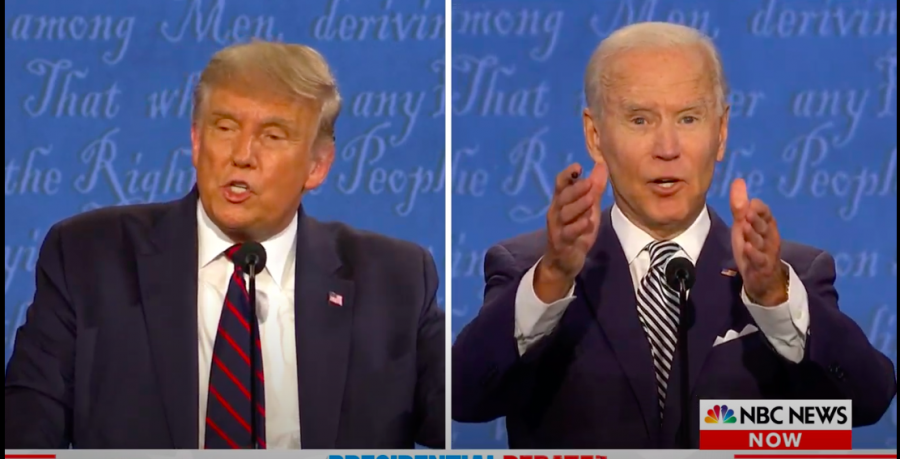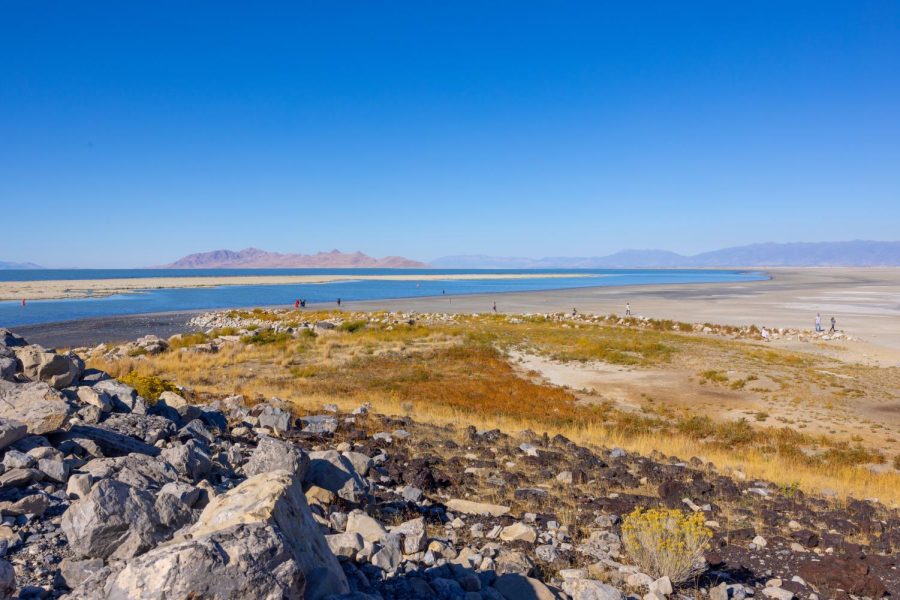Utah’s 2024 legislative session ended in March, and the Great Salt Lake remained a concerning topic. Legislatures passed several notable bills this year to aid the depleted lake.
Great Salt Lake Commissioner Brian Steed said the 2024 session, while not as active as previous years, was still a “solid win” in helping to get the lake back to a healthy level. Steed added that the Utah legislature has made 65 changes to water laws in the last five years. The 2024 session built upon these changes.
“The other thing that’s happened over the last five years is there’s been this tremendous influx of cash [from the legislature] for a variety of projects for conservation,” he said.
The Great Salt Lake hit its lowest point in recorded history in 2022. Great Salt Lake Deputy Commissioner Tim Davis said the lake showed signs of ecological collapse; brine flies have almost completely disappeared.
In 2023, the lake saw a 3.5 foot increase after record-breaking snowpack and the raising of an adaptive management berm that connects the north and south arms of the lake. According to the Salt Lake Tribune, the Great Salt Lake is expected to see a 1-1.5 foot rise after this year’s spring runoff. But, the lake will still remain over three feet below the “healthy range” set by the Utah Department of Natural Resources.
Laws Passed
Davis said H.B. 453 was “clearly the most important” bill passed in the 2024 session. The law creates tax incentives for mineral companies to stop diverting water from the Great Salt Lake when water levels become dangerously low. It also tasks the state engineer with developing a distribution plan to determine how much water is safe to remove from the lake.
Additionally, the law sets a salinity limit to help maintain the reproduction of brine shrimp and brine flies.
Davis said the second most significant law passed this year was S.B. 18. The bill changed the definition of saved water and agricultural optimization. It also laid out how saved water, particularly from farmers, can be used. This makes transferring water to the Great Salt Lake easier.
The key changes in this bill involve using less water and not redirecting water elsewhere. If a farmer uses less water in their farming practices, that saved water can be used for things like filling the Great Salt Lake. Saved water also includes water that’s not redirected for other purposes. So, if a farmer doesn’t use all their water rights, that extra water can be used for something else — like helping the Great Salt Lake.
“It’s a key tool that we need to make sure that water that is conserved can get to the lake,” Davis said.
H.B. 11 restricts the number of overhead sprinklers used on some new government construction projects surrounding the Great Salt Lake basin.
“It’s trying to set an example for other water users in the basin to have government lead out and say we’re going to cut back on how much overhead sprinkler water that’s used and water that’s lost to evaporation,” Davis said.
The bill applies to landscaping for new public properties on the local and state levels. The law does not restrict the active use of sprinklers for sports fields, parks, golf courses, amphitheaters, cemeteries and social gathering areas.
H.B. 280 creates a water infrastructure fund to help measure water storage, distribution and transport. The bill also pays for a study to find ways to fund water infrastructure. Davis said some of the money can be used for conservation efforts.
“It’s not directly tied to the lake, but it still could benefit the lake in the future,” he said.
The legislature also allocated $10 million to the Great Salt Lake Commission to secure water rights from irrigation companies. This is to help ensure water reaches the Great Salt Lake.
Davis said the commission is working with water districts near the lake basin to release as much from their reservoirs into the lake as possible, especially if the districts already need to release the water for flood prevention.
“During these wet water years, we need to be able to figure out how to get as much water to the lake as possible … because during dry years, we’re just trying to minimize the damage that’s done,” Davis said.














